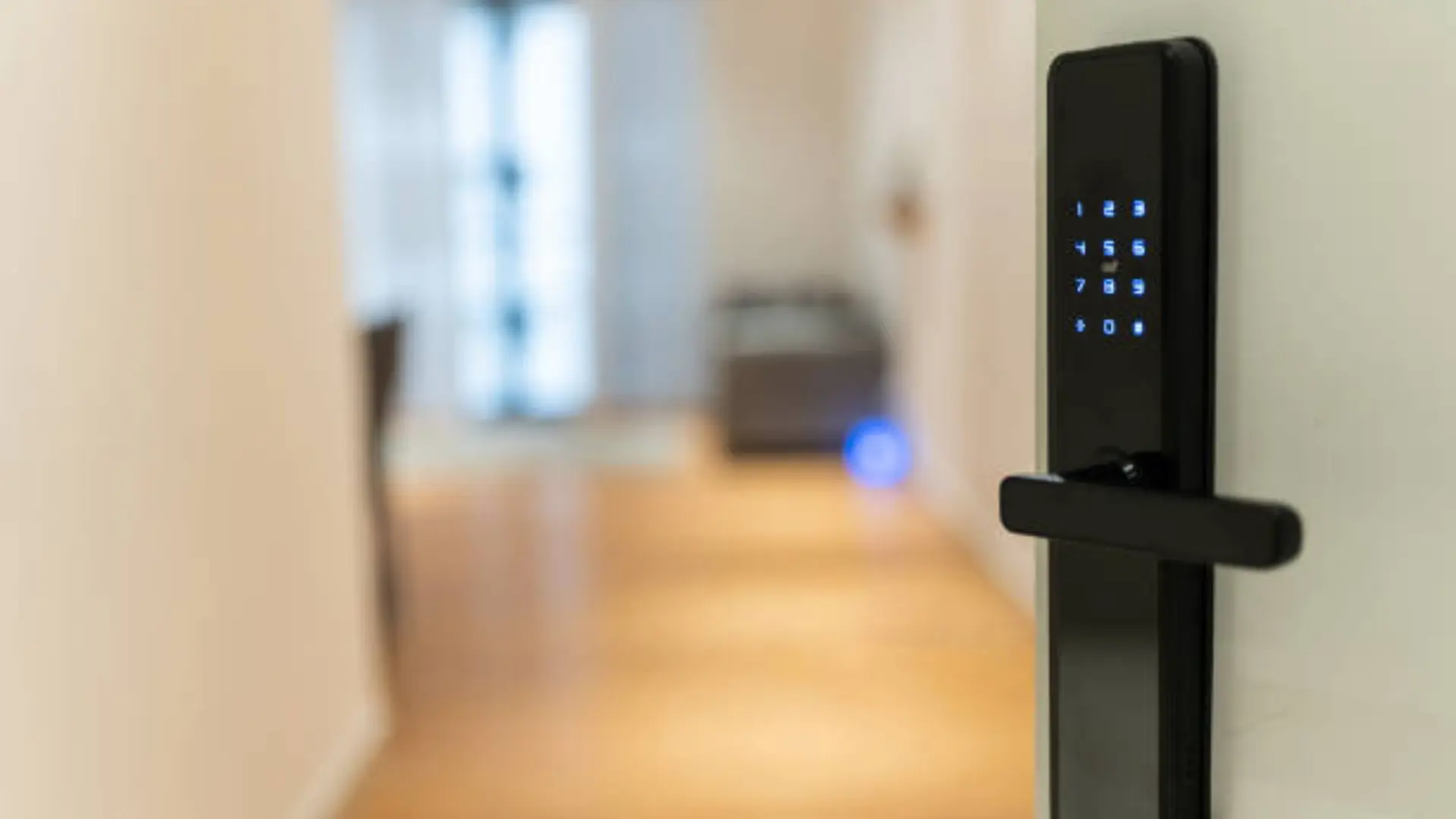In today’s digital era, home security has evolved beyond traditional lock-and-key mechanisms. Smart door locks have emerged as an essential component of modern home security, offering enhanced protection, convenience, and remote access control. Whether you’re a homeowner, a renter, or a business owner, integrating a smart door lock can significantly bolster security while adding a layer of technological sophistication. In this comprehensive guide, we will explore the essentials of smart door locks, their key features, benefits, installation processes, and considerations when choosing the right one for your home.
Understanding Smart Door Locks
Smart door locks are electronic locking systems that provide keyless entry, remote access, and automation features. Unlike traditional locks, these devices can be controlled via smartphone apps, voice assistants, keypads, or biometric authentication methods. They use advanced security protocols, such as encryption and two-factor authentication, to ensure only authorized individuals can gain entry.
Key Features of Smart Door Locks
To choose the right smart lock, it’s crucial to understand its core features. Here are some key aspects to consider:
- Keyless Entry – Smart locks eliminate the need for physical keys, allowing access through PIN codes, Bluetooth, Wi-Fi, or biometrics.
- Remote Access – With internet connectivity, users can lock or unlock their doors from anywhere using a smartphone app.
- Biometric Authentication – Many smart locks come with fingerprint recognition, making access more secure and convenient.
- Integration with Smart Home Devices – Compatibility with voice assistants like Alexa, Google Assistant, or Apple HomeKit enhances automation.
- Auto-Locking Mechanism – Smart locks can automatically lock the door after a set time, reducing the risk of forgetting to lock up.
- Guest Access Management – Temporary or one-time access codes can be generated for visitors, service providers, or guests.
- Tamper Alerts and Activity Logs – Notifications and logs keep homeowners informed about who enters and exits the property.
- Backup Power and Mechanical Key Override – Many smart locks have backup power options or emergency physical keys in case of battery failure.
Benefits of Smart Door Locks
Smart locks offer a range of benefits that go beyond traditional locking mechanisms:
- Enhanced Security: Features like encryption, biometric access, and multi-user authentication improve security against unauthorized access.
- Convenience: Homeowners can grant or revoke access without needing to be physically present.
- Improved Access Control: Monitor entry and exit logs through smartphone apps.
- Integration with Smart Home Ecosystem: Work seamlessly with security cameras, doorbells, and home automation systems.
- No More Lost Keys: Eliminate the hassle of misplacing or duplicating keys.
How to Install a Smart Door Lock
Installing a smart door lock is relatively straightforward and typically requires basic tools. Follow these steps:
- Choose the Right Lock – Ensure compatibility with your door type and existing deadbolt setup.
- Remove Existing Lock – Unscrew and detach the old lock mechanism.
- Install the Smart Lock Mechanism – Follow the manufacturer’s instructions to mount the new lock.
- Connect to the App – Pair the smart lock with the designated mobile app.
- Test Functionality – Check locking/unlocking features, battery status, and connectivity.
Choosing the Right Smart Door Lock for Your Home
When selecting a smart lock, consider the following factors:
- Security Features: Look for features like AES encryption, two-factor authentication, and tamper alerts.
- Power Source: Battery-powered or hardwired models vary in reliability and maintenance.
- Connectivity Options: Choose between Bluetooth, Wi-Fi, or Z-Wave based on your home automation setup.
- Compatibility: Ensure it integrates with your smart home system.
- Budget: Prices vary depending on features; select one that meets your needs without overspending.
Common Concerns and How to Address Them
While smart locks offer enhanced security, they come with certain concerns:
- Hacking Risks: Opt for locks with encryption and regular firmware updates.
- Power Failures: Ensure your lock has a backup power source or physical key override.
- Installation Challenges: Some locks may require professional installation.
Final Thoughts
Smart door locks are an excellent investment for homeowners seeking enhanced security and convenience. With features like remote access, biometric authentication, and integration with smart home systems, they provide robust protection against unauthorized entry. By carefully choosing the right smart lock and following best practices, you can ensure a secure and hassle-free home entry system.
HANeX Smart offers high-quality smart door locks and security solutions for homes and businesses. Explore our range of innovative, reliable, and easy-to-use locks for enhanced safety and convenience.
Quick Links
- Home
- About
- Shop
- Contact
Company
- Blog
- Privacy Policy
- Term & Condition
- Refund Policy
Get in Touch
- 01626-864950
- support@hanexsmart.com
- Badda, Dhaka, Bangladesh
Copyright © 2025 Hanex Smart, All rights reserved

